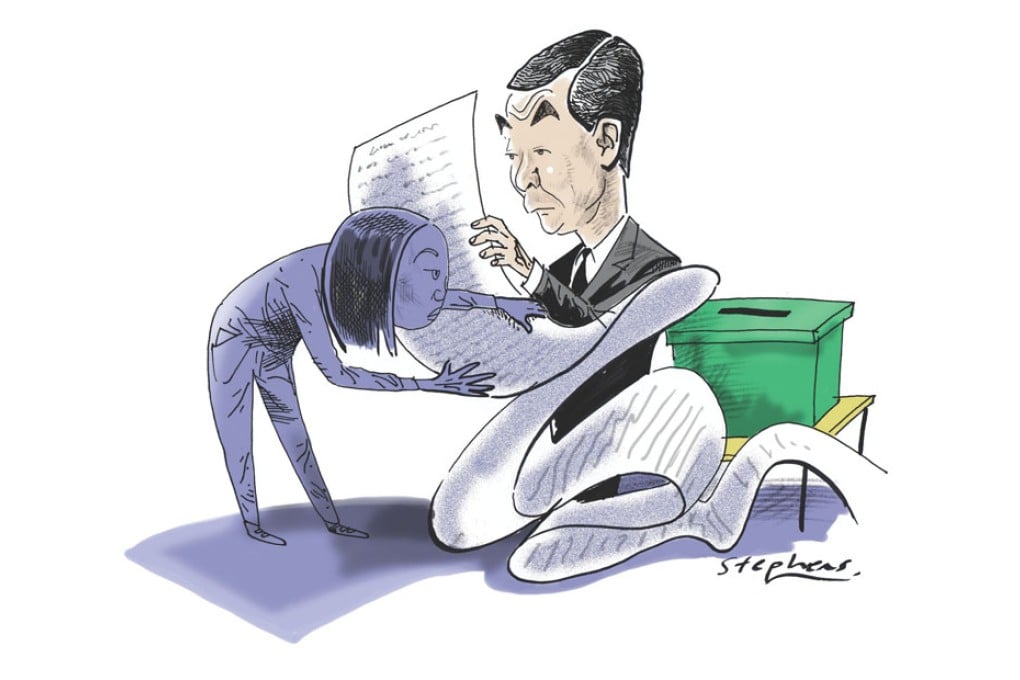Government should come clean about why it is so against civic nomination
Keane Shum says with so many theories of statutory interpretation available, it's hard to accept the government's seeming insistence on excluding civic nomination of candidates for the chief executive election

Some time ago, the chief executive and I exchanged letters, in these pages, on the topic of universal suffrage. In a developed society, I argued, it was an inevitable evolution, and Hong Kong was as ready for democracy as any society ever could be.
Leung Chun-ying wrote that any proposal "to elect the chief executive by universal suffrage is half-baked without proposing consequential changes to other provisions" and, far from guaranteeing universal suffrage, the Basic Law stipulates that "the appointment of the chief executive without any form of elections, let alone universal franchise, is allowed". He spelled the doom of a constitutional crisis if the central government refused to appoint whomever was returned by a direct election, and cited the "gradual and orderly progress" clause of Article 45 in calling for a slowly, slowly approach.
That was 10½ years ago. Mr Leung, are we there yet?
Ever since he took office, Leung and his administration have sounded no different than he did then, in 2003, as an executive councillor in the Tung Chee-hwa administration. Though the government has launched its public consultation, it seems to take every opportunity to constrict, rather than expand, the terms of the debate.
The latest example was Secretary for Justice Rimsky Yuen Kwok-keung's essay expounding on theories of statutory interpretation. Under the principle of (to express one thing is to exclude another), he wrote, "It is difficult to see any changes of circumstances that can justify the inclusion of civic nomination or nomination by political parties under Article 45."
Is it so difficult? Why couldn't a political party, or any block of nominating committee members that holds enough seats on the committee to put forward a candidate, hold a civic nomination process to determine its nominee? To suggest that the only way a candidate could be nominated is for the entire committee to decide in isolation without consulting one another, or the constituents they are mandated to broadly represent, begs the application of another principle of statutory interpretation: (reduction to absurdity), meaning a law cannot be interpreted to produce an absurd result.
, after all, is but one of many theories of statutory interpretation. Under the common law, there are no hard and fast rules for how to decipher legislation. Almost always, governments - and courts - cherry-pick the theory of interpretation that leads to the conclusion they favour. And for some reason, this government seems to keep insisting on theories of interpretation that limit the extent to which the public would be able to participate in elections.
